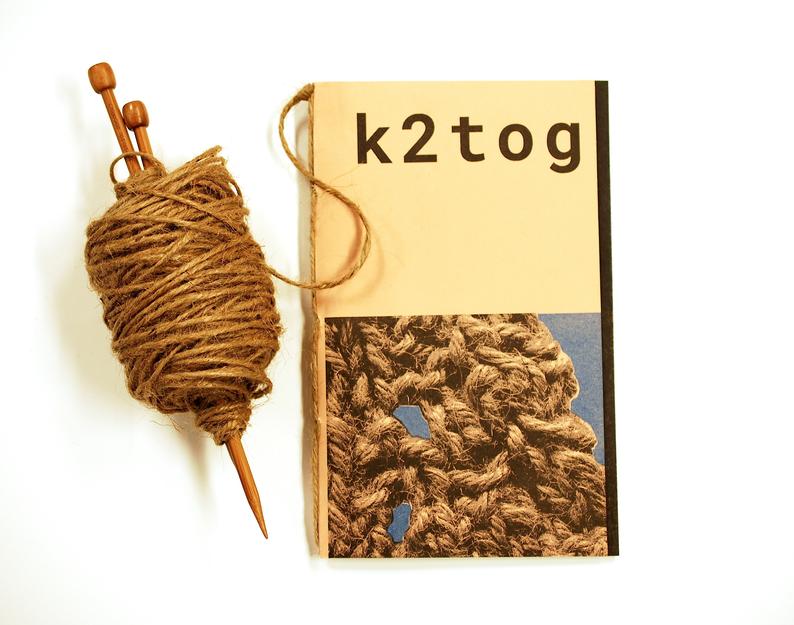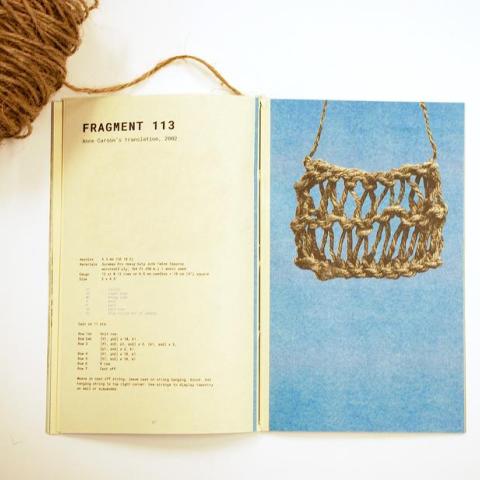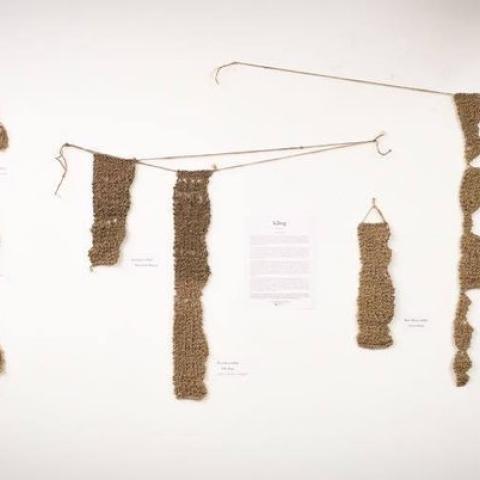
Jessica Bebenek's k2tog invites us to visualize and feel poetry in a way we never have before. The book comprises a collection of poems, each translated into a knitting pattern, as well as two knitting needles and a ball of twine, inviting the reader to create a unique, one-of-a-kind knitted poem all their own.
From the artist's website:
The collection includes three sets of poems: Elizabeth Bishop’s “Sandpiper” (1962) and P.K. Page’s glosa “Poor Bird” (1994); Sylvia Plath’s “Blue Moles” (1960), Anne Sexton’s “Sylvia’s Death” (1963), and Maxine Kumin’s “How It Is” (1974); and several translations by women of Sappho’s “Fragment 113”. Each poet reflects and expands on the lives, deaths, and words of the women who came before her, just as my ‘poems’—the tapestries—contain and reinvent each woman’s language. I wrote the patterns by mapping the stressed and unstressed syllables in the rhythm of each poetic line, and then translating those into knit and purl stitches. Each line of verse is a knitted row and each syllable, a stitch. Quite literally, these knitted poems can be read—if you understand both languages.
Jessica invites us to try our hand at knitting one of her translations. How will each of our knitted poems compare to each other's, and the original written piece? Join us in the library for an afternoon of literary translation, no experience necessary.
This event is free, and all materials will be provided.
For more information on k2tog and Jessica Bebenek, check out her website and etsy

